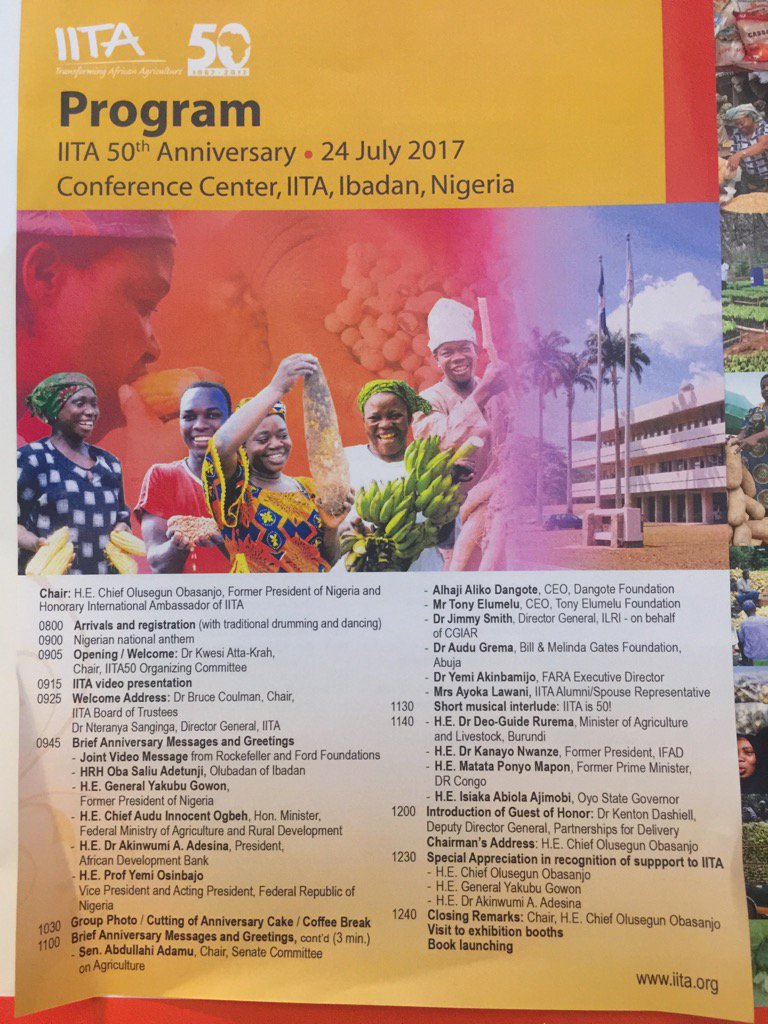24 - 29 July 2017, Ibadan. The International Institute of Tropical Agriculture (IITA) celebrated its 50th anniversary in highlighting sustained commitment in agricultural investment.
Download program
Social Media Kit
Nigeria's acting president, Yemi Osinbajo, former Head of State, General Yakubu Gowon (Rtd) and former President Olusegun Obasanjo, led a throng of dignitaries in celebrating the Institute's past successes and reflect on it future role in its efforts to transform agriculture in the next 50 years.

The video can be watched on the facebook page of IITA
The event showcased the strides made by IITA researchers in collaboration with a range of partners and their impact on agriculture in the region and improving the livelihoods of smallholder farmers.
- These include adoption of almost 400 varieties of cassava with increased yields and better resistance to biotic and abiotic stresses; developing nearly 200 improved soybeans and 78 improved yam varieties.
- Over 70 percent of the over 300 maize varieties with IITA germplasm and drought-tolerant maize developed in partnership with CIMMYT has been adopted in 13 countries with projected economic gains of 907 million U.S. dollars.
- Impact has also been felt in improving nutrition through promoting legumes such as cowpea and soybean, developing biofortified yellow cassava with enhanced vitamin A and the effective and safe biocontrol solution, Aflasafe, to control aflatoxins in maize and groundnut that is being rolled out in 11 countries.

Related:
This webinar examined the integrated approach taken by the Next Generation Cassava Breeding (NEXTGEN Cassava) project to conduct cassava trait preference and gender profiling in Nigeria. The session included presentations from two gender experts involved in the project followed by a moderated Q and A with the audience.



No comments:
Post a Comment